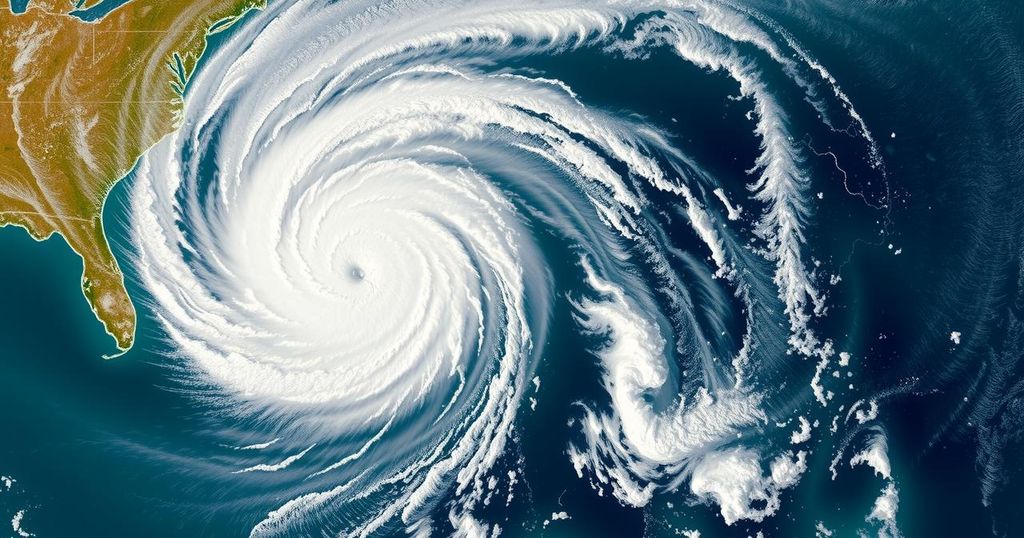Cyclone Chido, a Category 4 storm, made landfall in Mozambique, wreaking havoc in Mayotte beforehand, leading to significant destruction and casualties. Affected areas are experiencing life-threatening conditions, including heavy rains and strong winds. Humanitarian organizations are mobilizing to address the urgent needs of approximately 1.7 million people vulnerable in Mozambique after the cyclone’s impact.
Cyclone Chido, categorized as a powerful Category 4 storm, made significant landfall in Pemba, located in the Cabo Delgado province of Mozambique, on December 15. Prior to this, the cyclone caused extensive damage in the French overseas territory of Mayotte, impacting numerous residents and infrastructure. Reports indicate that Chido sustained wind speeds exceeding 200 km/h, creating life-threatening conditions and severe weather-related challenges across both regions.
The Malawi Red Cross reported that Cyclone Chido’s impact was felt beyond Mozambique, extending to parts of southern Malawi, with ongoing threats of heavy rainfall, strong winds, and flash floods. The International Organization for Migration has highlighted that approximately 1.7 million individuals are now vulnerable in Mozambique due to the cyclone’s catastrophic effects, with government and humanitarian partners mobilizing to assess the situation and respond appropriately. UNICEF echoed similar concerns regarding the potential long-term effects on already vulnerable communities in Mozambique and reinforced their commitment to assisting those affected.
Before affecting Mozambique, Cyclone Chido left devastation in its wake on Mayotte. The prefect of Mayotte, Francois-Xavier Bieuville, confirmed reports of severe destruction, including entire neighborhoods being flattened and a rising death toll, potentially amounting to hundreds or even thousands. This has been compounded by the cultural practices in the predominantly Muslim area, where deceased are often buried within 24 hours, complicating casualty assessments. Additionally, Meteo France indicated that the cyclone’s wind gusts were the most severe the island has experienced in more than nine decades, leading to widespread emergency measures on the island.
Cyclone Chido represents a significant meteorological event in the region, classified at Category 4 on the Saffir-Simpson scale, indicating severe damage potential. It formed and intensified as it approached the coast of Mozambique after initially impacting Mayotte, an island territory of France located in the Indian Ocean. Cyclones such as Chido can lead to heavy rainfall, destructive winds, and flooding, necessitating immediate humanitarian response and long-term recovery efforts. This particular cyclone not only raised concerns regarding immediate safety and human impact but also about recovery strategies for regions already facing socio-economic vulnerabilities.
In conclusion, Cyclone Chido has posed a grave risk to both Mozambique and Mayotte, prompting immediate responses from government agencies and international organizations. The cyclone has left a lasting impact on the affected communities, especially in terms of loss of life and infrastructure. Continued assessment and support are essential to ensure that recovery strategies are effectively implemented in the wake of this disaster.
Original Source: www.downtoearth.org.in







